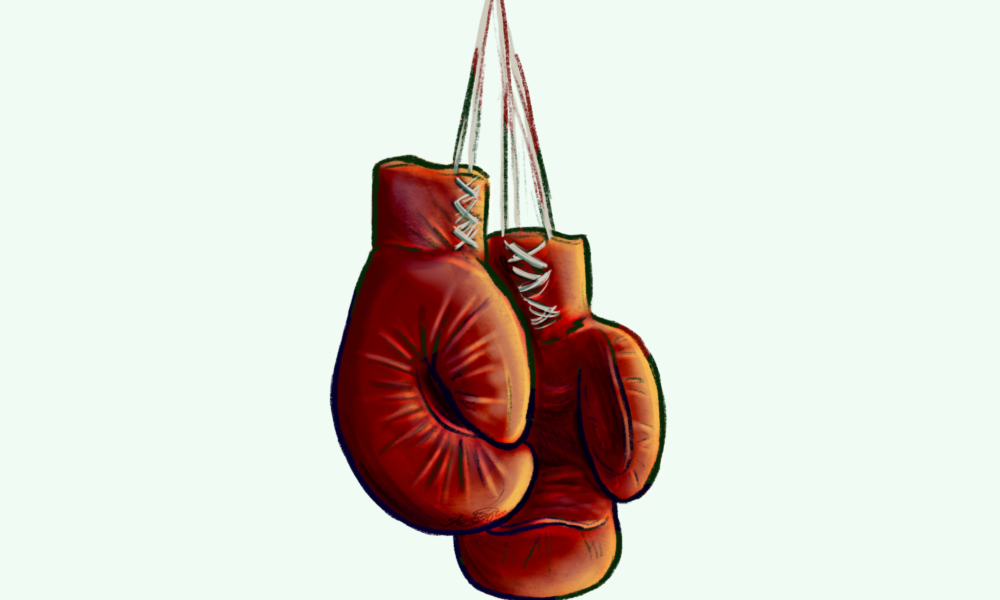Content Warning: Mentions of transphobia, racism, and misogyny
In the 2024 Paris Olympic Games, Italian boxer Angela Carini abandoned her 66-kilogram Round of 16 match on Aug. 1 after 46 seconds, following her failure to properly block two hard hits to the face by Algerian opponent Imane Khelif. Rather than celebrating Khelif’s resulting win, media outlets focused on Carini’s teary post-fight comments and speculated upon whether or not Khelif is a cisgender woman—which she is.
In the days after the fight, self-proclaimed boxing experts subjected Khelif to invasive scrutiny over her body and her childhood as they attempted to decide for themselves whether or not they considered Khelif to be “feminine” enough to meet their definition of womanhood. High-profile voices like J.K. Rowling, Elon Musk, and Logan Paul further fueled the abuse.
Transitioning is criminalized in Algeria, making these claims not only an insult to Khelif’s integrity, but a genuine threat to her livelihood. Furthermore, it makes the notion of Algeria sending a transgender athlete to represent itself in the Olympics extremely unlikely.
The International Olympic Committee (IOC) released a statement clarifying that every athlete at the Games had cleared their respective eligibility rules and condemning both the harmful discourse and the previous 2023 decision from the International Boxing Association (IBA) that fueled it. In 2023, the IBA—an organization that lost IOC recognition as the global boxing body in 2023 with a 69-1 vote due to issues over governance, finances, and ethics—made the sudden and controversial decision to disqualify Khelif and fellow Olympian Lin Yu-ting based on the results of a vaguely-defined “separate and recognized test.”
In recent years, transphobes and misogynists alike have found a new method of attacking women: Suggesting that any talented woman athlete must have been assigned male at birth. Khelif is not the first or the only woman to be swept up in debates about their gender. After American swimmer Katie Ledecky—arguably one of the most dominant athletes in the world—won the 1500-metre freestyle, ESPN’s celebratory Facebook post attracted several comments questioning her gender.
Unlike Ledecky, Khelif isn’t even the dominant athlete that she is characterized to be—she lost to Irish boxer Kellie Harrington in the quarterfinals of the 2020 Tokyo Olympic Games (held in 2021), and to Irish boxer Amy Broadhurst in the 2022 IBA Women’s World Boxing Championships, which are just two of her nine career losses. Carini, on the other hand, lost her opening fight in the 2020 Olympics.
Despite their claims that they “protect women’s sports,” transphobes can’t stand to see women athletes succeed and dominate, unintentionally pushing forward a misogynistic narrative alongside their transphobia. In their anti-trans fury—which is already condemnable—the “protect women’s sports” crowd are now attacking cis women as well.
Women, such as Khelif, who are discriminated against based on both their gender and their race experience even more adversity. The masculinization of women of colour is strongly rooted in racism—especially in anti-Black racism—and has repeatedly been aimed at several successful BIPOC athletes. Throughout her playing career, conspiracy theorists have repeatedly subjected American tennis legend Serena Williams to fabricated speculations that she is not a cis woman. And following a recent Olympic soccer matchup between the Australian and Zambian women’s national teams that resulted in a tight 6-5 win for Australia, Australian commentator Lucy Zelić publicly questioned the gender eligibility of sole Zambian goal scorers Barbra Banda and Racheal Kundananji—two of the bright spots in an otherwise struggling Zambian women’s national soccer team—who are both star players for their respective club teams in the National Women’s Soccer League.
Headlines such as “Boxer previously banned from women’s events wins fight after opponent quits in 46 seconds” and “Imane Khelif, Algeria boxer who had gender test issue, wins first Olympic fight when opponent quits” further fuel baseless accusations from reactionary onlookers who do little more than read the headlines. Presenting the fact that Khelif previously failed gender tests in the head of a piece without contextualizing it in the fact that Kheilf is a cis woman and that she is fully eligible to participate in the Olympics is irresponsible, dangerous journalism.
Imane Khelif has fought her whole life to get to this moment; she is a woman from a rural village in Algeria who sold scrap metal to fund her bus fares to training, despite her father’s disapproval of girls participating in boxing. However, transphobic hate and journalistic malpractice has turned what should have been presented as an inspiring story into a flurry of personal attacks fueled by the tears of a white woman.







